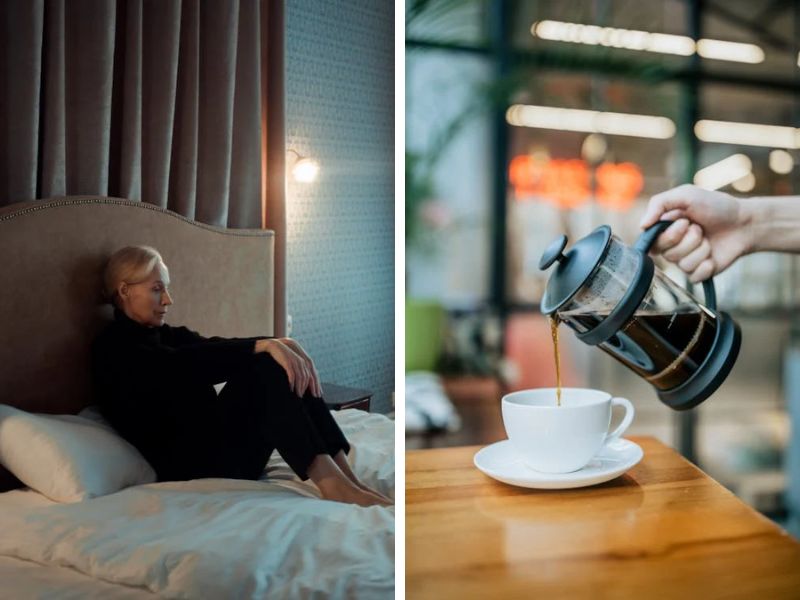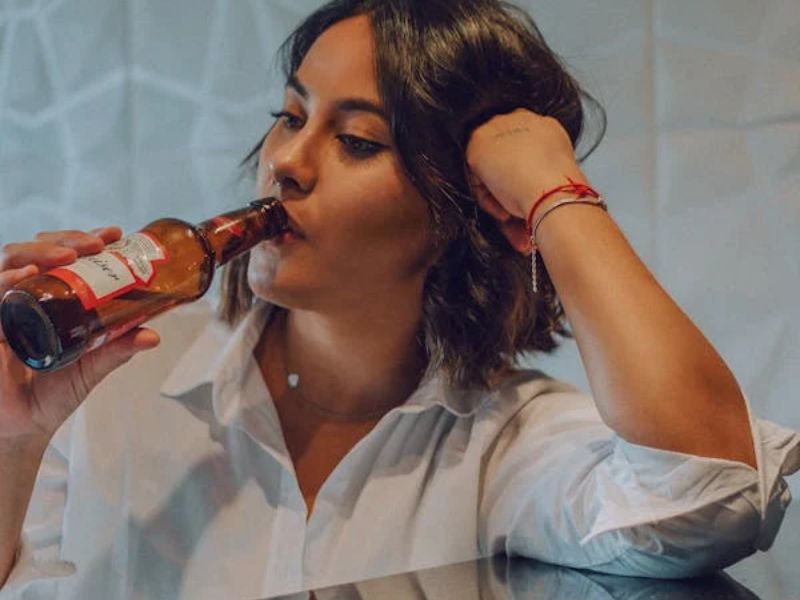Dietitians constantly advise patients to consume enough fluids, according to Academy of Nutrition and Dietetics spokesperson Amy Bragagnini. You need to drink enough liquids throughout the day to stay hydrated, but what type of liquids you drink also matters.
How late do you usually go to bed? Answering this question helps us provide information to patients that will help them meet their fluid goals and sleep well. In addition, you should discuss when and how much liquid you drink.

Image Credit: Pexels/cottonbro studio & Pexels/Yaroslav Shuraev
Caffeinated Drinks
Caffeine can affect sleep later in the day. Caffeinated beverages may help you stay awake in the afternoon. Anxiety, insomnia, and restlessness can occur when you consume more than 400 mg of caffeine daily.
Chris Winter, a sleep expert and neurologist, advises that caffeine should be avoided six hours before bedtime for better sleep. “Caffeine can disrupt the depth of sleep and affect sleeping time,” Bragagnini said.
Alcoholic Beverages
Drinking wine or beer before bedtime might make you sleepy, but it disrupts sleep. As a result, alcohol can have both sedative and stimulative effects. In the beginning, it might help someone fall asleep, but the sedative effect wears off as soon as they wake up.

Image Credit: Pexels/André Henrique
REM sleep is the deepest stage of sleep. Drinking alcohol before bed can disrupt this cycle. Furthermore, it may disrupt sleep, resulting in vivid or scary dreams and lower inhibitions, resulting in unhealthy snacking before bed.
Winter recommends making your last call four to five hours before bed. Most people take this long to metabolize alcohol, depending on their size, weight, and how much they drink.